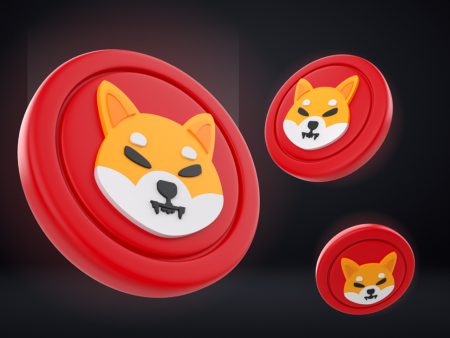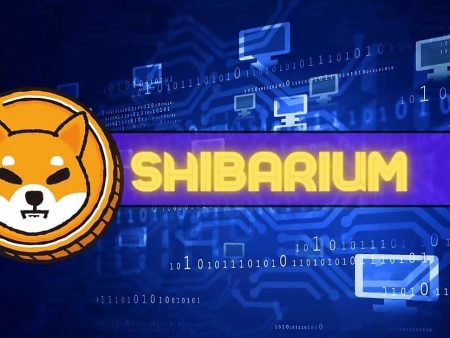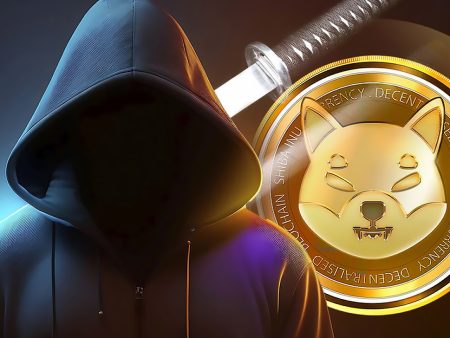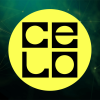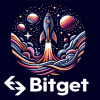NFT ownership is a concept that is gaining traction in the crypto community and among tech enthusiasts. In an increasingly digital world, understanding NFT will give you a deeper insight into the future of asset ownership.
So follow this article of AZCoin below to learn about NFT ownership and the benefits and risks associated with owning this unique digital asset.
What is NFT ownership?
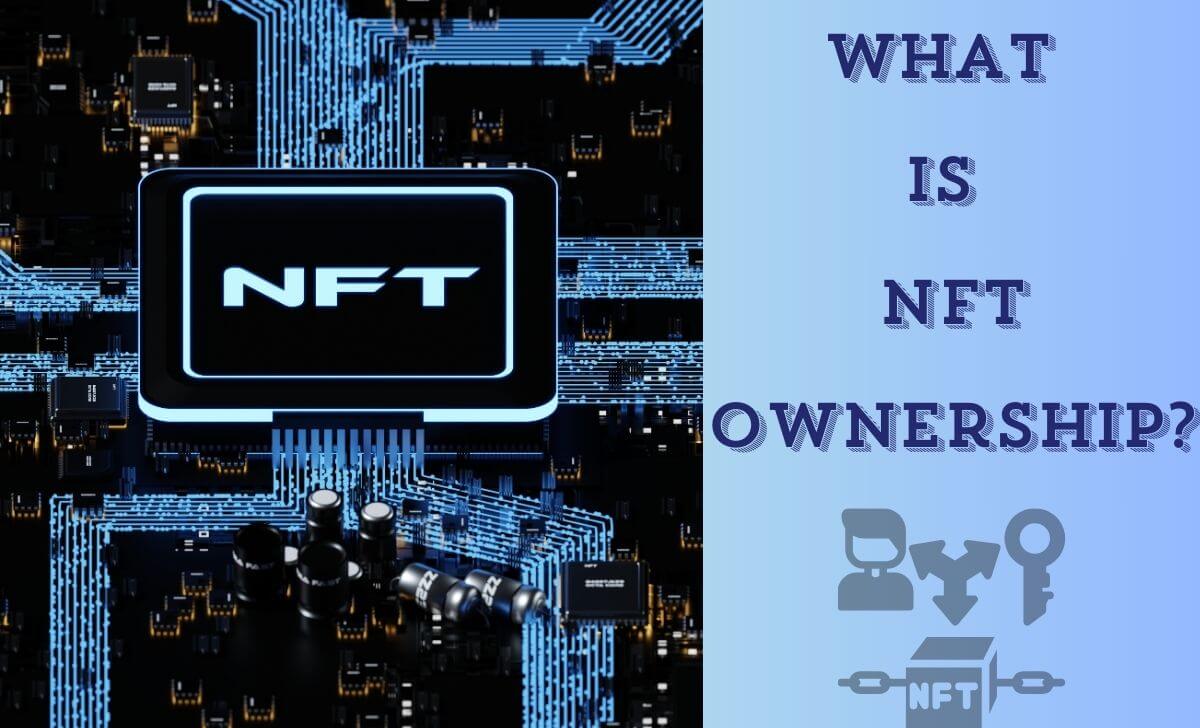
NFT ownership is the ownership of digital assets that is verified through blockchain technology. NFT (Non Fungible Token) are non-fungible and non-replicable tokens that represent exclusive ownership of assets such as digital art, videos, music or any other type of digital content.
When purchasing an NFT, the buyer owns a unique identifier associated with that asset on the blockchain, ensuring transparency and traceability of ownership.
How does NFT ownership work?
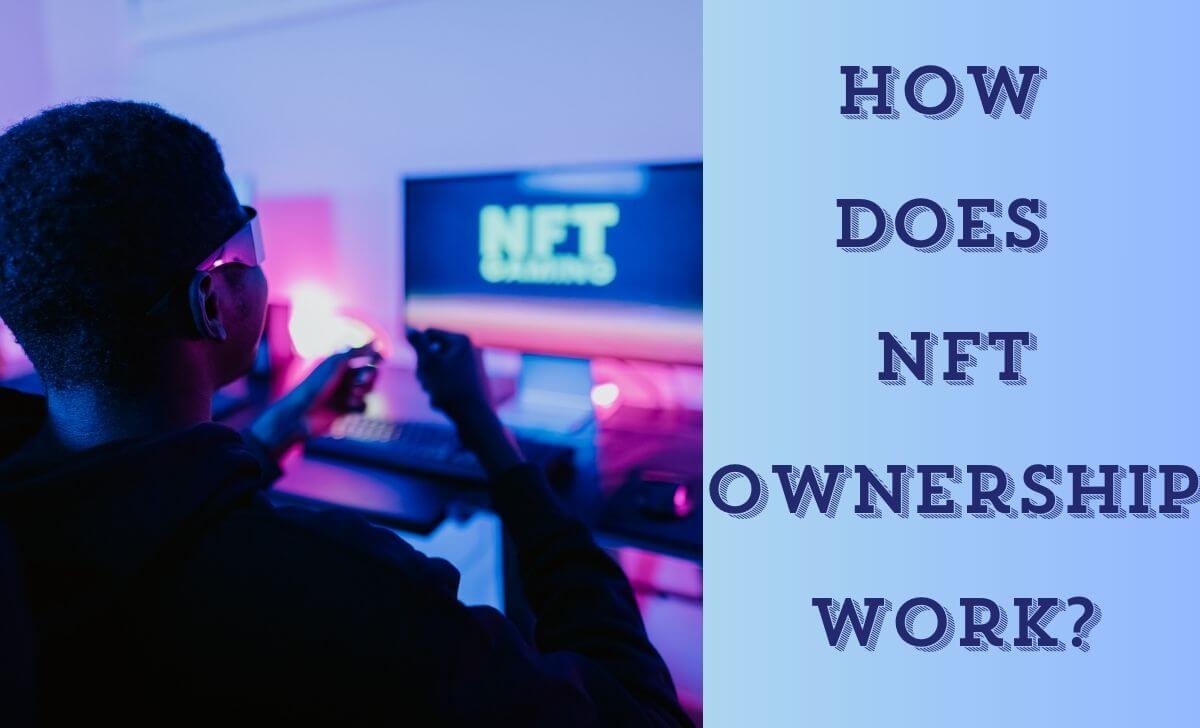
NFT ownership works by recording ownership and related transactions on the blockchain. When someone buys an NFT, their ownership is confirmed by updating information on the blockchain, which contains the NFT blockchain unique identifier.
Blockchain stores the entire transaction history and ownership, ensuring transparency and immutability. This allows owners to prove ownership of the digital asset and easily transfer or sell the NFT to others without going through a middleman. Smart contracts integrated into NFT can automatically execute contract terms, such as revenue sharing from resale to the creator, increasing the flexibility and value of the digital asset.
Outstanding features of NFT ownership
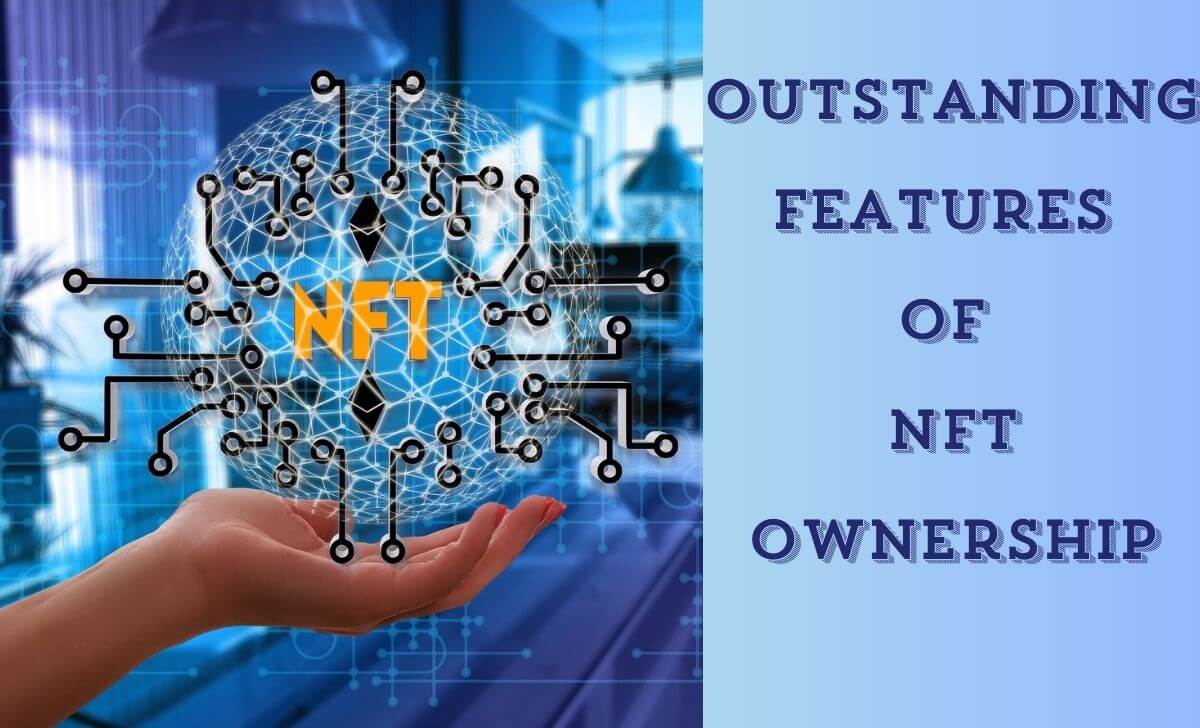
NFT ownership has the following outstanding features:
- Uniqueness: Each NFT is a unique token on the blockchain that can’t be replaced or copied, confirming the uniqueness and difference of the digital asset it represents.
- Non-fungibility: Unlike standard tokens like Bitcoin or Ethereum (which can be replaced with each other), each NFT has its own value and can’t be exchanged for another NFT at a 1:1 ratio.
- Proof of ownership: Blockchain technology provides a public and transparent ledger system, allowing owners to prove their ownership of digital assets.
- Traceability: The transaction history and ownership of an NFT can be easily and transparently traced on the blockchain, helping to prevent counterfeiting or duplication.
- Easy transfer: NFT can be easily bought, sold and transferred on NFT exchanges or directly between individuals, without the need for intermediaries.
- Support for creators: NFT allows digital content creators to retain ownership and control the distribution of their work, as well as profit from the sale or transfer of the NFT.
- Immutability: Once created and recorded on the blockchain, NFT can’t be changed or edited, ensuring the integrity and security of the digital asset.
- Fragmentation of ownership: An NFT can be divided into smaller pieces, allowing multiple people to own a portion of the digital asset, opening up investment and ownership opportunities to more people.
Risks of owning NFT ownership
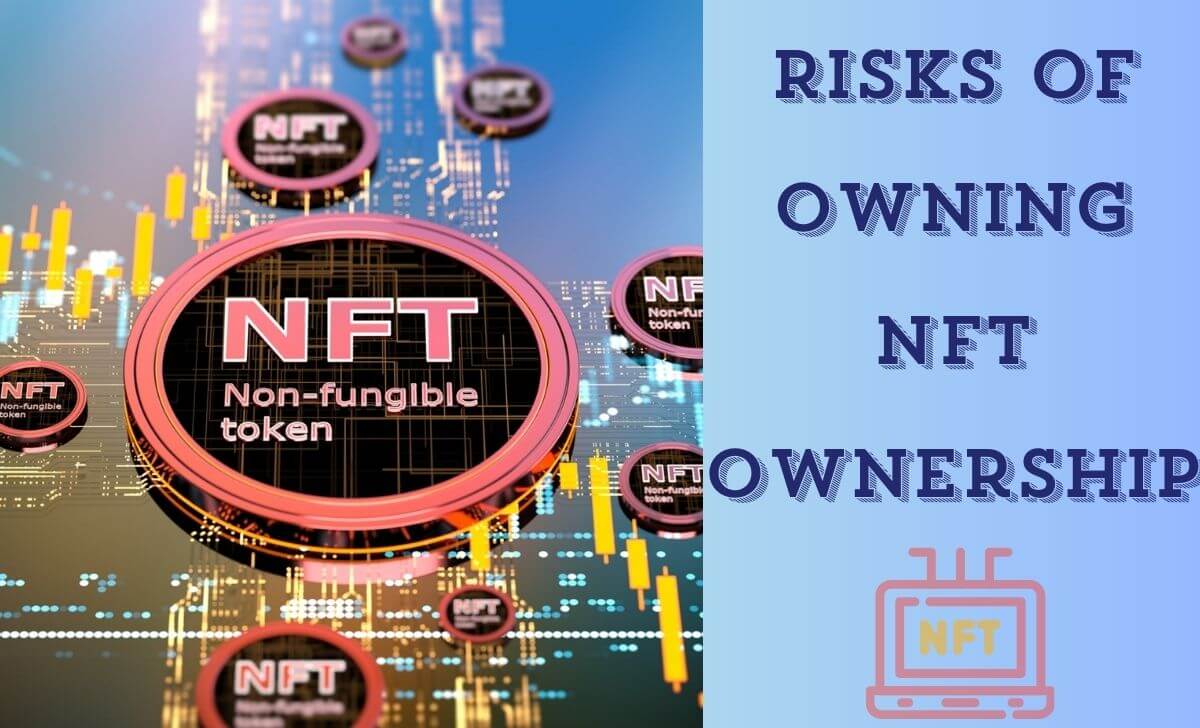
Although owning NFT ownership has many benefits, there are also some risks that users need to consider before participating in this market, such as:
- Security risks: NFTo can be stolen if your cryptocurrency wallet is hacked or you lose control of your private keys. Securing your wallet and keys is important to protect your digital assets.
- Price volatility: The value of NFT can fluctuate wildly and be unstable. This can lead to financial loss if the value of the NFT drops after you have purchased it.
- Low liquidity: Some NFT can be difficult to sell or transfer quickly, especially if the market for that asset is not active or there is not much interest.
- Copyright issues: While an NFT proves ownership of a digital asset, it does not necessarily guarantee copyright or commercial use rights. NFT owners should understand the terms and conditions surrounding the rights to use the asset.
- Smart contract risks: Smart contracts that run NFT may contain bugs or security vulnerabilities, resulting in NFT being lost or not functioning as intended.
How to verify NFT ownership
To verify NFT ownership, you can follow these steps:
- Check on the Blockchain: Each NFT is recorded on the blockchain, which contains ownership information and transaction history. Use blockchain explorers or tools like Etherscan to look up the NFT identifier and verify the current owner.
- Use a crypto wallet: If you own an NFT, it will be stored in your cryptocurrency wallet. Check your wallet to make sure the NFT appears and belongs to you. Popular wallets like MetaMask or Trust Wallet both offer NFT management features.
- Verify on an NFT exchange: If your NFT is traded on an NFT exchange like OpenSea, Rarible or Foundation, you can verify ownership by looking up your asset on that platform. Exchanges often provide detailed information about the NFT and its owner.
- Check the Smart Contract: Each NFT is typically governed by a smart contract on the blockchain. Review the information in the smart contract to verify ownership and related terms.
- Check the Metadata: NFTs often come with metadata that contains detailed information about the digital asset, including ownership. Make sure the NFT metadata matches the information you know about ownership.
The Future of NFT ownership
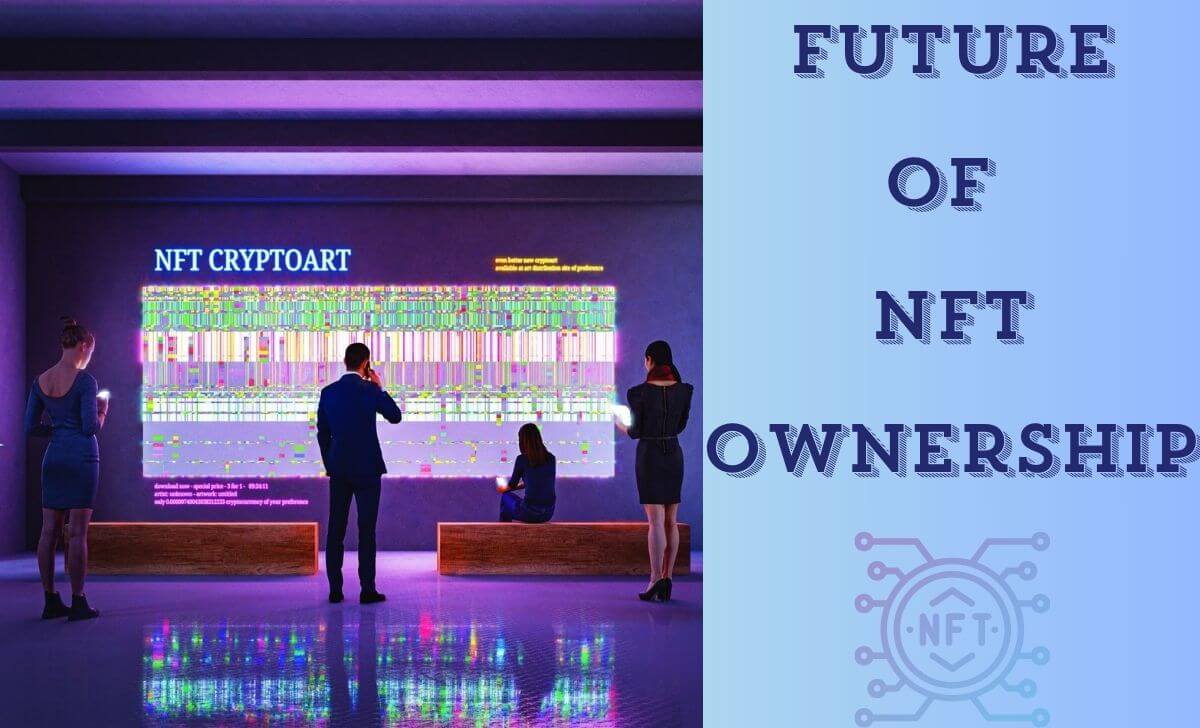
The future of NFT ownership is expected to see strong growth with the expansion of applications and integration into various fields. According to a report from DappRadar, the NFT market has witnessed significant growth, with transaction volume reaching around $23 billion in 2023, up from $17 billion in 2022.
In the future, NFT ownership may become more popular in areas such as digital real estate, intellectual property rights and even digital certification in traditional industries. Research from Gartner predicts that 75% of large organizations will implement NFT applications within the next 2-3 years, indicating the increasingly deep integration of NFTs into business models and asset management.
Additionally, with the development of blockchain technology and smart contracts, NFT ownership is likely to become more flexible, allowing users to easily transfer, authenticate and manage their digital assets more securely and efficiently.
Some knowledge related to NFT ownership that you can read more about: Pudgy penguins
Conclusion
Hopefully, this AZcoin introduce information has given you an overview of the concept of NFT ownership. NFT ownership is a new and evolving concept. Understanding NFT ownership will help you make wise decisions when participating in the NFT market.

I’m Jessi Lee, currently living in Singapore. I am currently working as a trader for AZCoin company, with 5 years of experience in the cryptocurrency market, I hope to bring you useful information and knowledge about virtual currency investment.
Email: [email protected]
